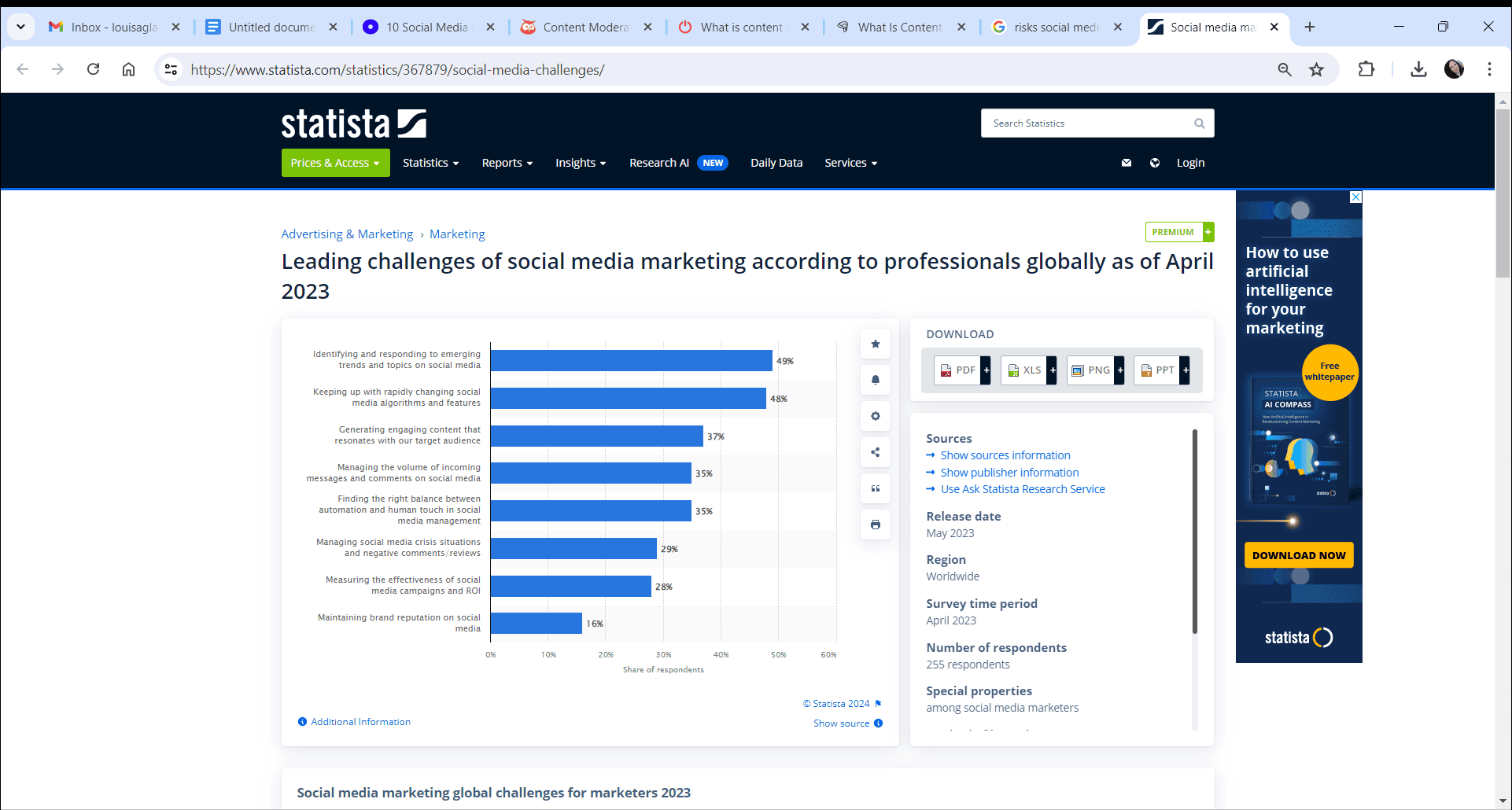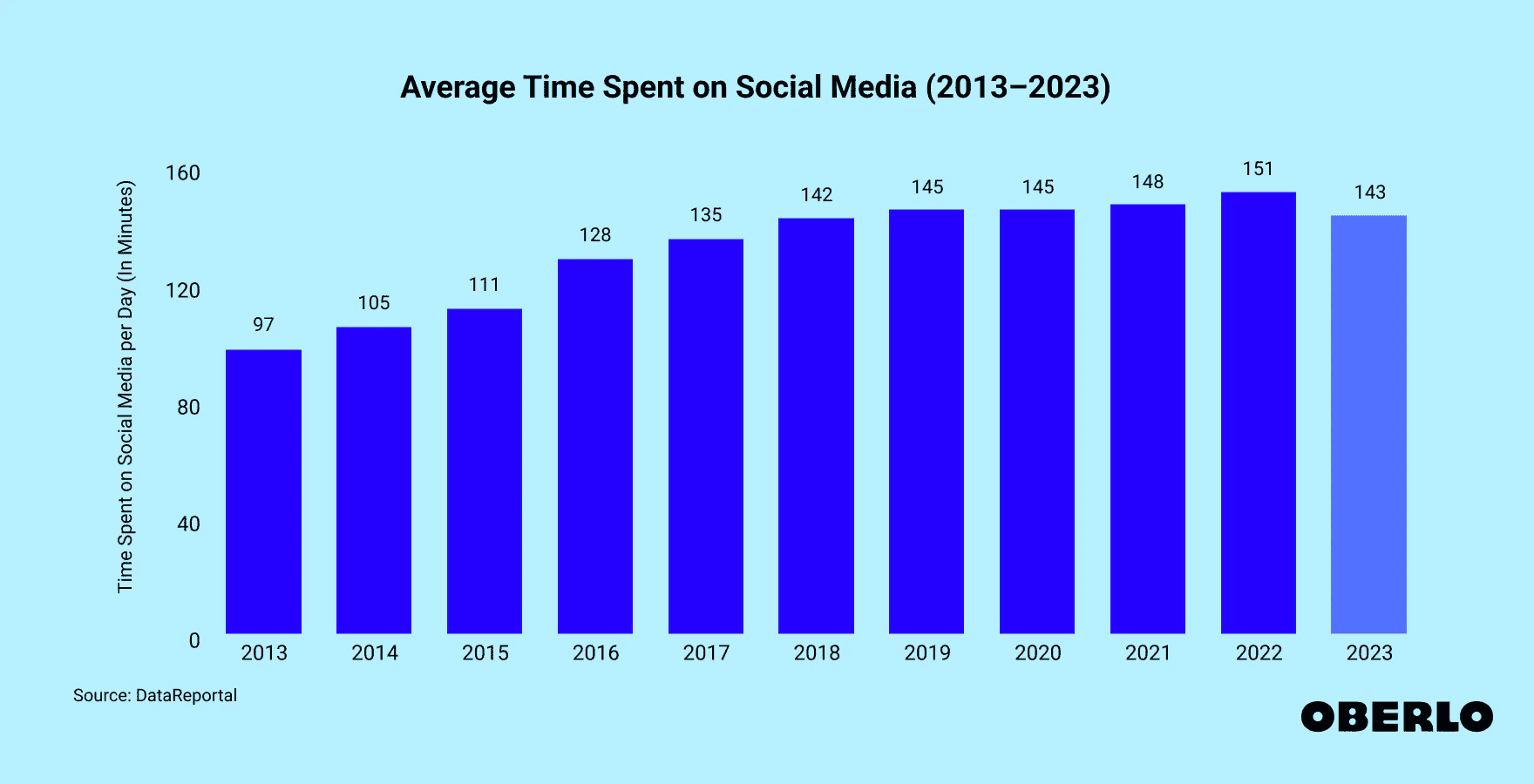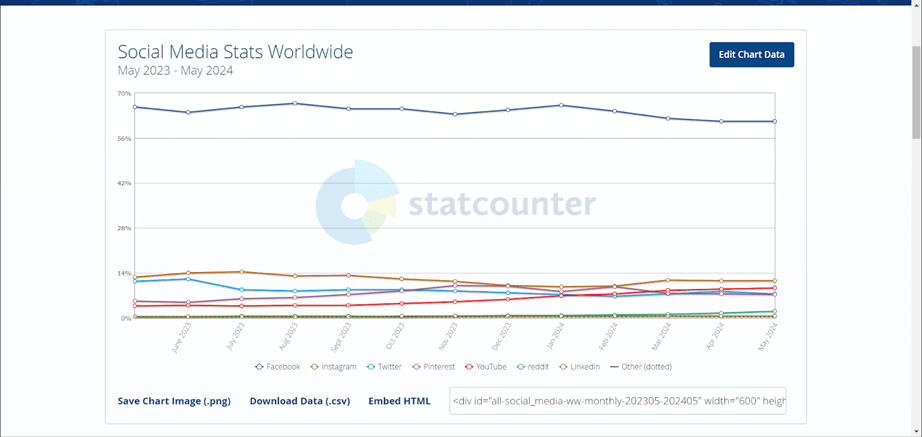Content is vital for any business, whether it’s on your website, on adverts or in emails. But content generated on social media can have particular challenges. Ensuring compliance by using content moderation is the only way to make sure that content aligns with your business’s ethics, ethos, style and message.
Ensuring compliance through social media moderation, is a vital way to defend your business against threats such as internet trolls, bots masquerading as genuine people, and scammers.
Keeping your content free from harmful messaging that can negatively impact your brand and its image, is as important as defending your IT systems from viruses and hackers.
Your social media content should be a safe, friendly forum where your brand can put its best foot forward and welcome your followers and consumers into a positive and pleasant space, where the impact of social media impressions is a beneficial one.
But content moderation compliance is also important to protect your business legally, and to safeguard your profits from the impact of uncontrolled comments and content.
Let’s look at how to ensure compliance through social media content moderation. And why it matters so much for your business.

Free to use image sourced from Unsplash
What is social media content moderation?
There are many safeguards a business must put in place to protect itself, from the importance of data security to look after valuable information, to health and safety on its premises. Social media content moderation is another important way to protect your enterprise, its image and online presence, as well as its profits and performance.
Social media content moderation should form part of your general social media management strategy. It means having a moderator who is tasked with monitoring any user-generated comments and online messages.
The individuals posting this content might be followers and customers, but they could also be those who have merely stumbled across your online presence. They could also be trolls and even bots.
The main task of a social media content moderator is to ensure that genuine people get responses to their comments, while trolls and malicious bots, get their posts deleted and their content removed.
But even genuine followers and customers can post content that contains bad language or other offensive content that needs to be screened and removed before it is published.
This can be done manually, by a human moderator, or it can be removed using an automated system, which is programmed to flag particular words, expressions, or images. More usually it’s a combination of automation and a human moderator that tackle the task of screening content generated by third parties.
This approach is especially effective for managing interactive content, which requires real-time moderation to maintain a dynamic and engaging user experience.

Free to use image sourced from Unsplash
Why social media content moderation matters
Choosing the right social media formula for your business, means deciding which platforms to be on, and what type of posts will work best for your brand.
Also, investing in professional logo design can enhance your brand’s visual identity, ensuring it is consistently represented across all platforms. But your online presence can be a double edged sword. In other words, it can be as much a threat to your business as it can be a huge benefit.
This is largely down to the pitfalls of getting your own content right, but it’s also down to the negative impact third-party generated content can have. This is essentially why social media content moderation matters, and why it’s such an important process.
In some ways, it can be seen as a risk management definition, that your own efforts to promote your business and raise its public profile should be within your business’s control, and not subject to the randomness of third party comments.
If you look at the chart below, you can see that managing social media, and in particular crisis situations such as negative comments, are quite high up in terms of the biggest challenges in social media marketing.
The golden rule is, your social media content should not represent a risk to your enterprise, and this means careful and thorough content moderation.

Image Sourced from Statistica
Types of content moderation
There are many types of problematic content that can plague a brand’s online presence, from offensive remarks, to misleading or incorrect information, to avoiding social media plagiarism.
In addition to these challenges, moderating rich media ads—which include advanced features like video, audio, and interactive elements—requires careful attention to ensure they comply with both platform guidelines and advertising standards. These ads can greatly enhance engagement but also pose unique moderation challenges due to their complex and dynamic nature.
Let’s look at the key areas that need to be closely monitored and moderated.
Is your content family friendly?
For most brands this is very important, and content producers generally try to avoid nudity, bad language, and violence. But are your third-party contributors sticking to these rules? You might want to set up filters to automatically censor anything that breaches your own guidelines in terms of content of this nature.
How old are your third-party contributors?
This is an important one. Depending on the type of business you run, the age of your followers needs to be considered. It’s a good idea to apply age restrictions so that only those, for example, over eighteen, can view and comment on your content. This protects not only under-age third parties, but also your business, because you are demonstrating your commitment to safeguarding.
Is your social media account spam and bot free?
Business systems are constantly under attack, cyber security is one way to defend your business, with technology such as the NIST cybersecurity framework. But spam and bot generated messages, designed to promote or sell products and services are not only a problem with emails and texts, increasingly, they are creeping into social media posts and comments.
To further safeguard your networks and ensure secure access to various online resources, maintaining an updated free proxy list can be crucial for effective content moderation.
The last thing you want is for this type of content to swamp and blight your timelines, devaluing your account and tarnishing your brand image. Filters are a useful way to identify and eliminate these types of posts, but a human moderator is also necessary for really thorough checking.
Are you doing all you can to eliminate hate speech?
Hate speech is unfortunately an insidious presence on social media. Those who produce this type of content are generally anonymous, and use numerous accounts to try to get their unpleasant messages out there.
Again, filters are a good option to make sure this type of material is never posted on your account. But due to the subtlety and complexity of some of these messages, it is definitely an area where human moderators should be used to thoroughly guard against hate speech.

Free to use image sourced from Pixabay
Social media content moderation methods
Looking at the chart below of average times spent on social media, it’s clear how important it is to ensure visible content is carefully moderated.
There are various methods to effectively moderate your content. But which approach works best for your company, will depend on the nature of your business and style of your social media presence and the platforms you use.
Some businesses can manage with automatic filters, plus one dedicated moderator. Others will need a team of moderators working around the clock. It’s important to make sure if you have a team of staff checking social media, that you give them the tools and technology they need.
This includes effective ways to share information between the team. For example an IP business phone might help pass warnings and tips between members of staff, and alert each other quickly, should a new threat be identified.
Additionally, employing a social media post generator can streamline the creation of consistent and compliant content, ensuring that posts align with brand standards and platform regulations before they even reach a human moderator.
So, how exactly do you moderate social media content? Let’s look at the methods most commonly used.
Pre-moderation
This approach means having all content checked and screened before giving permission to post it. The moderator must filter out any content that goes against the account’s rules on what is acceptable. It can be a time-consuming method and is often more suited to smaller Facebook groups rather than a brand’s main platform or account.
Post-moderation
This method is the opposite of pre-moderation. Content can be posted without being vetted, but
can be removed if moderators or filters pick up that it is inappropriate. This approach can leave the account vulnerable to followers seeing unsuitable content before it is removed, so it’s often employed for websites and platforms with a lower amount of followers.
But post-moderation can also be of the reactive variety, meaning your team is ever vigilant and capable of spotting and dealing with inappropriate content quickly.
Automated moderation
Automated moderation as we have already mentioned, means relying on automatic filters rather than solely human workers. Machine learning and AI play an important part in flagging and intercepting damaging or inappropriate content before it can be posted and damage your brand.
Automation can deal with a high volume of posts and can be used in isolation or in conjunction with human moderators.

Image Sourced from Oberlo
What are the benefits of social media content moderation?
Social media content moderation can ensure that your brand’s content is high-quality, and aligns with both your brand’s image, and its values. It protects this highly crafted image and voice from the negative impact of inappropriate content.
The health of your accounts relies on keeping harmful content away from the eyes of your followers through content moderation, and protecting your brand against lawsuits and prosecution, as well as a negative reputation among consumers.
Social media is undoubtedly valuable to your bottom line, if your social media accounts are effectively managed, you can even leverage social media to close deals, and attract new customers. Another benefit of moderating and protecting your online presence, is that your content gains a higher position with internet search engines, because its quality is seen to be high.

Free to use image sourced from Pixabay
Specific social media platforms
In addition to your brand’s own guidelines and rules regarding social media posts, each platform such as Tik Tok, Instagram and YouTube will have their own guidelines and rules. But we’re going to look at Facebook in particular because, as you can see from the chart below, it’s one of the most popular social media sites.
Moderating content on your brand’s Facebook page is not only beneficial for your company, it’s also an obligation. Facebook has its own terms of service, and violating these can lead to having your account suspended. This is also true of most of the main social media platforms, so it’s worth checking each one to see what your obligations are.
Facebook’s guidelines for content moderation include making sure that all content posted is accurate and not misleading, is respectful, and does not carry hate speech, discrimination, or threats of violence. It also prohibits illegal activities and anything that exploits or endangers children.
It may seem unnecessary to mention these issues as any respectable business would of course align with these guidelines. But it is worth mentioning, because even though your brand may comply with Facebooks’s guidelines in terms of the content it posts, there is always the danger that third party content, generated by users will contrevine these rules.
As with other platforms there are certain tools that can help you moderate Facebook content.
Facebook has its own in-built tools such as the ability to delete comments, block or hide certain users and create customized sets of rules for your own individual Facebook page.

Image Sourced from Statcounter
Top Tips
Here are a couple of top tips for successful social media content moderation.
It’s wise to respond to third-party posts as fast as possible, to maintain a polite and reasonable tone when intersecting with users, and to delete or address negative posts as quickly as you can.
If this becomes onerous for your particular business and team, it might be worth looking at outsourcing your moderating. There are various services that offer both automated and human moderation, and these can be a great investment in terms of protecting your social media accounts and freeing up your own staff’s time.
Final Thoughts on Social Media Content Moderation
Social media content moderation is a vital tool in the protection and enhancing of your brand’s online presence. It forms one of the most important parts of your reputation management strategy and image management.
Ensuring your content is protected, while maintaining an open and accessible online presence is a fine balance. You want to safeguard your social media accounts, yet you don’t want to make them into fortresses where followers and customers can’t engage or be involved.
Social media offers brands a low cost, but highly effective way to boost brand image and get messages about products and services out there. It’s also a fantastic way to connect and engage with customers.
Social media content moderation is a way to protect this valuable asset, and make the most of social media’s power to connect and communicate.


